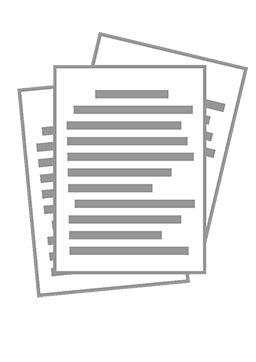Extras din curs
Business Contacts Language focus: adjectives
ADJECTIVES
Adjectives are words that are used to modify a noun.
Kinds
There are many kinds of adjectives and they usually determine a noun. We have met a clever negotiator (adjectives of quality: new, young, interesting, rich, poor etc); Some people understand our policy (quantitative adjectives: some, any, no, few, many, much, one)); This office is ours (demonstrative adjectives: this, that, these, those). There are also distributive adjectives: each, every, either, neither, interrogative adjectives: which, what, whose and possessive adjectives: my, your, his, her, its, our, your, their.
Business Contacts Language focus
Adjectives of Quality
We will focus on adjectives of quality in this section.
Form
These adjectives have only one form for singular, plural, masculine and feminine nouns:
I have a very young boss (m. or f.) I have a young sister/ I have young colleagues.
Some adjectives are derived from other parts of speech (usually verbs or nouns) by means of suffixation, as shown in the table below:
Business Contacts Language focus
Form
Verb: limit, persuade, deduct, persist, etc.
Derived adjective: limited, persuasive, deductible, persistent.
Noun: hope, fame, care, profession etc
Derived adjective: hopeless, famous, careful, professional
Business Contacts Language focus
Use
The position of adjectives is usually before nouns, but also after the verbs: be, seem, appear and look.
We have a competitive product/ The product seems competitive.
Some adjectives are used after the nouns:
The problems discussed were very interesting for most of the directors.
Other adjectives may be used both before and after the noun (present, involved, responsible etc.)
The present members of our Board will decide in this matter./ Those members present today will take a decision.
Business Contacts Language focus
Compound adjectives
Nouns and adjectives may be combined to modify another noun, in which case the word can be hyphenated (although the hyphen is often a matter of personal preference).
He is an open-minded fellow.
I can be empty-headed sometimes.
Travelling for Business Language focus
Adjectives - Degrees of comparison
There are three degrees of comparison: positive, comparative and superlative.
One-syllable adjectives form their comparative and superlative in a synthetic way, namely by adding -er and -est to the positive form. Let us take the adjective rich as an example. Here are its degrees of comparison:
Travelling for Business Language focus: adjectives
Degrees of comparison – short adjectives
Positive: rich
Comparative of superiority: richer than
Comparative of equality: as rich as
Comparative of inferiority: less rich than
Superlative absolute: very rich
Superlative relative: the richest of/from
Travelling for Business Language focus
In the case of long adjectives (of two or more syllables) the comparative of superiority and the superlative relative are formed by the help of more and respectively most. Let us take the adjective interesting and form its degrees of comparison:
Positive: interesting
Comparative of superiority: more interesting than
Comparative of equality: as interesting as
Comparative of inferiority: less interesting than
Superlative absolute: very interesting
Superlative relative: the most interesting of/from
Travelling for Business Language focus
Adjectives of two syllables can follow one or other of the above rules: the ones ending in –ful or –re usually take more and most, whereas those ending in –er, -y or –ly take –er and –est:
careful more careful the most careful
obscure more obscure the most obscure
clever cleverer the cleverest
pretty prettier the prettiest
holy holier the holiest
Travelling for Business Language focus
Some adjective have irregular comparisons:
good better best
bad worse worst
ill
little less least
many more most
much
far further furthest
farther farthest (of distance only)
old older oldest
elder eldest (of people only and especially within a family)
late later latest
latter (the second of two)
last (the opposite of the first)
Travelling for Business Language focus
There are many constructions with comparisons used in the discourse:
The bigger the investment is the more money it will produce.
His position in the company is getting higher and higher.
Last but not least point is
The results of our team are exceptionally good.
Note
Some adjectives are also used as nouns: good, bad, poor, rich, young, old, living, dead, healthy, sick.
The rich(n[1]) are making the rules here. Rich (adj[2].) people are always making the rules.
[1] n = noun
[2] adj. = adjective
Travelling for Business Language focus
Multiple adjectives
When using more than one adjective to modify a noun, they may be separated by a conjunction or by commas.
Your results are good and promising.
You have good, promising results.
Past participles of verbs can also be used as adjectives, such as native born, foreign made, soft spoken, warmly dressed, well behaved, and so on.
I was satisfied with that foreign made device.
Conținut arhivă zip
- Businesss English Basics.ppt








